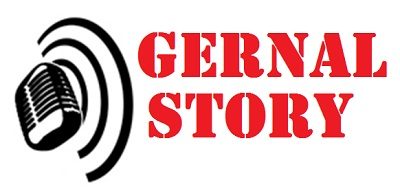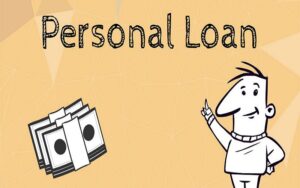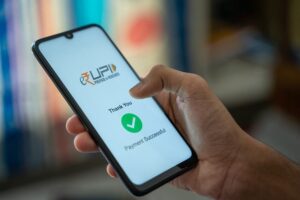Risk-Free Growth: Accelerating Business With Collateral Free Loans

Securing funding capital is vital for the success of Australian small businesses. The best way for businesses without prominent assets to ensure growth may be through collateral free loans.
Keep reading to find out how a collateral free loan may be useful for the risk-free growth of your business.
Collateral Free Loans Explained
While qualifying and securing financing could help small business owners further expand their soon-to-be empire, a few crucial factors contribute to the sustainability of the small business, and the type of loan is one of them. As a rule of thumb, small businesses need to pledge collateral when securing a loan. Even though collaterals provide security to financial institutions, they can represent a significant risk to small businesses.
For that reason, small businesses typically opt to secure a collateral-free loan. A collateral free loan can provide a business with the necessary capital without asking for a collateral pledge.
With a collateral free loan, you may be able to secure a risk-free cash flow for your business’s growth. Instead of asking for an asset as collateral, collateral free business loans typically consider your:
- Creditworthiness
- Business plans
- Credit score
- Financial statements
It is important to note that based on the factors pinpointed above, you may get higher or lower interest rates depending on the risk the lender takes by lending you money without collateral security. Choosing a reliable lender and paying attention to the loan terms before signing anything is crucial.
Types Of Collateral Free Business Loans In Australia
There are several types of collateral free business loans that you could consider for risk-free growth. The collateral free types of loans you may apply for include the following:
- Short-term unsecured loans
- Equipment finance
- Invoice finance
- Business credit cards
Short-term unsecured loans
In Australia, businesses may apply for a short-term unsecured loan. Because these business loans are without collateral, you should expect a short-term repayment period (typically within a year) if you apply for one.
Because a tangible asset does not back unsecured loans, lenders grant them based on your creditworthiness, financial health, and business performance.
The loan amount and interest rates are assessed based on credit score, profitability, revenue history, and cash flow. If you apply for a short-term collateral loan, expect to meet some general requirements.
While the requirements may vary from lender to lender, generally, they include the following:
- Have a good credit rating
- Have an ABN number and registered with GST
- Must be a permanent resident of Australia
- Be able to provide bank statements if asked
Equipment invoice
You could consider applying for an equipment invoice if you intend to use a loan to modernise your equipment or machinery.
Equipment invoice loans are usually processed quickly and require no collateral. You may use an equipment invoice loan to rent, lease, or hire equipment purchases if approved.
A major requirement for equipment invoices is sharing proof of positive cash flow in recent months or the quarter. Also, you must have a decent credit score.
Invoice finance
This is another collateral free loan option you, as a small business owner, might consider. Invoice financing involves your lender advancing money to your business based on the value of the outstanding invoices.
If your business relies on customer payments to build cash flow and manage expenses, the non-availability of funds may stall your business operations.
You want to avoid your current low capital due to pending receivables to stand in the way of your growth. Invoice funding loan amounts vary based on how much your clients owe you.
Eligibility criteria for invoice finance loans usually are:
- Registered ABN number
- Still unreceived pending payments from Australian clients
- Have pending invoice payments to make
Business credit card
Another type of collateral free loan option is a business credit card. Business credit cards are a type of revolving unsecured loan with a credit limit.
Because these loans are revolving, you can spend, repay, and spend the credit limit again. You may use a business credit card to pay bills, make purchases, and manage your business cash flow without any collateral.
Collateral Free Business Loans Features
While there are several types of loans for businesses without collateral, they have some common features, such as:
- There is no requirement for collateral– you do not have to pledge a valuable asset as collateral or security to apply.
- Your creditworthiness– lenders typically grant loans without collateral, depending on the borrower’s creditworthiness. Creditworthiness includes your credit score, income, and financial statements. The higher the credit score, stable income and financial statement, the lender could possibly consider you less of a risk, and you could get a better deal.
- Shorter repayment term– compared to secured loans, collateral free ones have shorter repayment periods. Repayment terms may range from one to a few years.
- Get approved faster– because these loans are without collateral, they typically have faster approval since there is no need for evaluation of collateral assets.
Advantages Of Collateral Free Loans
- Risk-free funding– with a collateral free loan, you may obtain the necessary capital to grow your business without risking valuable assets.
- Credit building– by getting and repaying a collateral free loan timely, you could build up a positive credit history for your business. Good credit could be useful in getting approved for future loans.
- Flexible use of funds– as these loans are not tied to a tangible asset, you can use the funds at your discretion. This includes expansion plans, working capital, or equipment purchases.
Frequently Asked Questions
What is a collateral?
Collateral refers to an asset with a definite financial value, which the borrower pledges as a security for a loan. The collateral serves as security for the lender if a borrower cannot repay the money.
In such instances, the lender reserves the right to claim permanent custody of the collateral asset and sell it to recover the unpaid loan amount. Generally, assets that may serve as a collateral pledge include:
- Real estate (land, buildings, or commercial spaces)
- Vehicles, machinery, and equipment
- High-value inventory
- Shares & stocks
Are collateral free loans suitable for small businesses?
Getting a collateral free loan is easier for smaller businesses. Small businesses are unlikely to have the necessary assets required for securing a collateral loan, and there’s a high chance they don’t qualify for traditional finance.
If you want to expand your business, consider a collateral free loan. You will not have to provide an asset as security while still getting the funds necessary for your business growth.
What documents do you need to apply for a collateral free loan?
You may need to provide the following documents when applying for collateral free loan.
- Bant statements
- Detailed business plan
- ABN
- Accounts payable and receivable
- Financial statements
- Integrated Client Account (ICA) details
- Tax returns
- Balance sheets
Conclusion
If you want to secure funds for your business but have no assets to put up as collateral, consider applying for collateral free loans.
While they have shorter repayment terms and higher interest rates, they are easier and faster to obtain. Plus, you do not have to risk losing a valuable asset.







